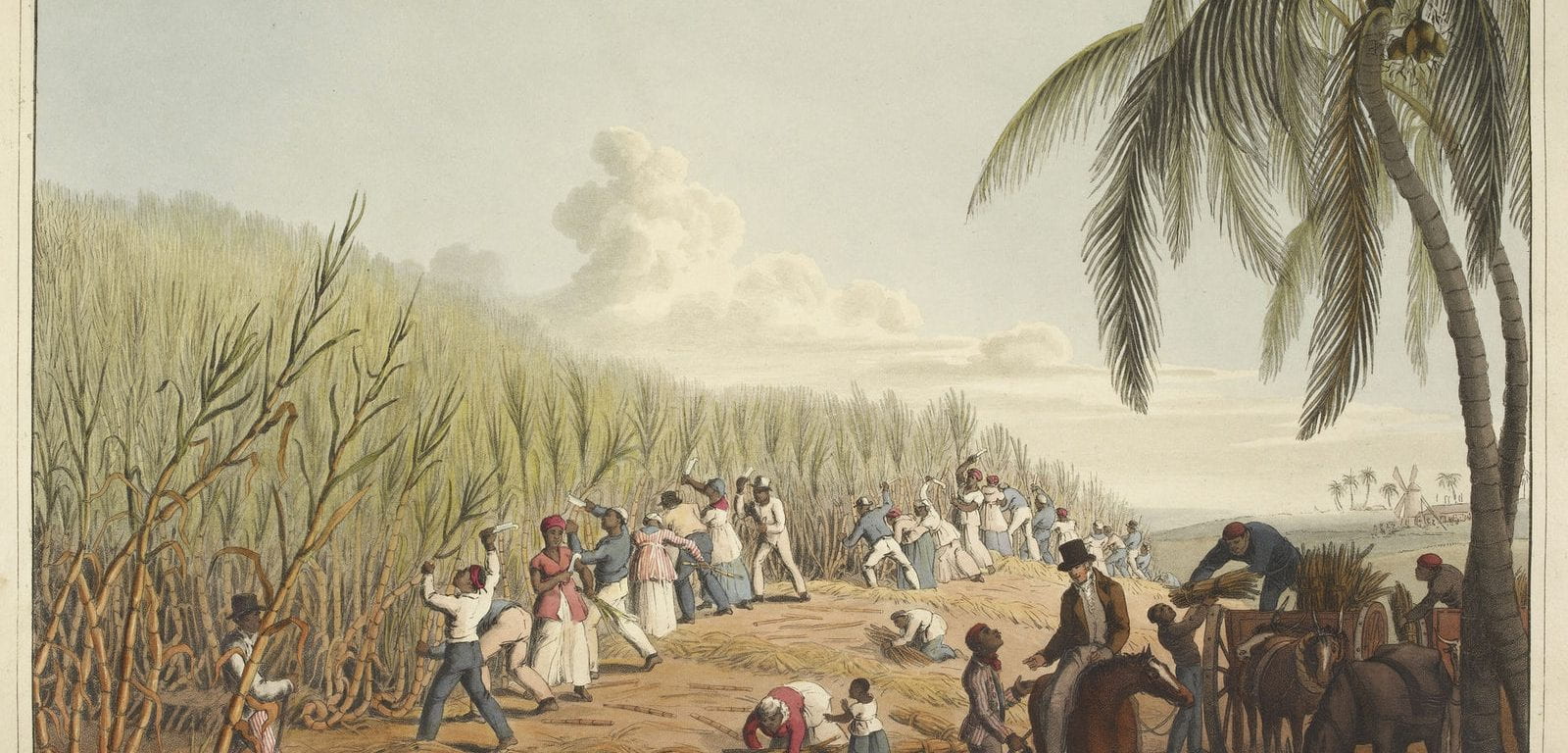| The Limits of Fear: The Saint Dominguan Challenge to Slave Trade Abolition in the United States |
White, Ashli |
2/2 – Fall, 2004 |
| Doctoring Ideology: James Grainger’s The Sugar Cane and the Bodies of Empire |
Thomas, Steven W. |
4/1 – Spring, 2006 |
| A ‘Dangerous Principle’: Free Trade Discourses in Barbados and the English Leeward Islands, 1650-1689 |
Koot, Christian J. |
5/1 – Spring, 2007 |
| The Port Royal Earthquake and the World of Wonders in Seventeenth-Century Jamaica |
Mulcahy, Matthew |
6/2 – Fall, 2008 |
| Late Seventeenth-Century Spanish Town, Jamaica: Building an English City on Spanish Foundations |
Robertson, James |
6/2 – Fall, 2008 |
| The Subject of the Slave Trade: Recent Currents in the Histories of the Atlantic, Great Britain, and Western Africa |
Wood Sweet, John |
7/1 – Spring, 2009 |
| Enslaved Merchants, Enslaved Merchant-Mariners, and the Bermuda Conspiracy of 1761 |
Maxwell, Clarence |
7/1 – Spring, 2009 |
| Markets and Morality: Intersections of Economy, Ethics, and Religion in Early North America: Special Issue Introduction |
Matson, Cathy |
8/3 – Fall, 2010 |
| A Wealth of Notions: Interpreting Economy and Morality in Early America |
Clark, Christopher |
8/3 – Fall, 2010 |
| Benign and Benevolent Conquest? The Ideology of Elizabethan Atlantic Expansion Revisited |
MacMillan, Ken |
9/1 – Winter, 2011 |
| “That Abominable Nest of Pirates”: St. Eustatius and the North Americans, 1680-1780 |
Enthoven, Victor |
10/2 – Spring, 2012 |
| “One Indian and a Negroe, the first thes Ilands ever had”: Imagining the Archive in Early Bermuda |
Miyano Kopelson, Heather |
11/2 – Spring, 2013 |
| Plantation Ecologies: The Experimental Plantation in and against James Grainger’s “The Sugar-Cane” |
Rupert, Britt |
13/2 – Spring, 2015 |
| “This Week Black Paul Preach’d”: Fragment and Method in Early African American Studies |
Saillant, John |
14/1 – Winter, 2016 |
| Chasing Capital in Hard Times: Monroe Edwards, Slavery, and Sovereignty in the Panicked Atlantic |
Luskey, Brian P. |
14/1 – Winter, 2016 |
| Privileging Kinship: Family and Race in Eighteenth-Century Jamaica |
Livesay, Daniel |
14/4 – Fall, 2016 |
| “All the baubles that they needed”: “Industriousness” and Slavery in Saint-Louis and Goree |
Everill, Bronwen |
15/4 – Fall, 2017 |
| Timbering and Turtling: The Maritime Hinterlands of Early Modern British Caribbean Cities |
Draper, Mary |
15/4 – Fall, 2017 |
| Towns in Plantation Societies in Eighteenth-Century British America |
Burnard, Trevor |
15/4 – Fall, 2017 |
| Negotiating Race and Status in Senegal, Saint Domingue, and South Carolina: Marie-Adelaide Rossignol and Her Descendants |
Force, Pierre; Dick Hoffius, Susan |
16/1 – Winter, 2018 |
| The Enslaved Ants and the Peculiar Institution: Argument by Analogy in the Slavery Question |
Minella, Timothy K. |
17/2 – Spring, 2019 |
| Conquest for Commerce: American Policymakers, Bermuda, and the War for Independence, 1775-83 |
DiPucchio, Nicholas G. |
18/1 – Winter, 2020 |
| Endangered Plantations: Environmental Change and Slavery in the British Caribbean, 1631-1807 |
Johnston, Katherine |
18/3 – Summer, 2020 |
| Enquire of the Printer: Newspaper Advertising and the Moral Economy of the North American Slave Trade, 1704-1807 |
Taylor, Jordan E. |
18/3 – Summer, 2020 |
| Security, Taxation, and the Imperial System in Jamaica, 1721-1782 |
Burnard, Trevor; Graham, Aaron |
18/4 – Fall, 2020 |
| “The reasonable sustentation of human life”: Food Rations and the Problem of Provision in British Caribbean Slavery |
Crawford, Nicholas |
19/2 – Spring, 2021 |
| Introduction: Sugar and Slaves after Fifty Years |
Burnard, Trevor; Games, Alison |
20/4 – Fall, 2022 |
| Distance and Blame: The Rise of the English Planter Class |
Gardina Pestana, Carla |
20/4 – Fall, 2022 |
| The Rise of “King Sugar” and Enslaved Labor in Early English Jamaica |
Zahedieh, Nuala |
20/4 – Fall, 2022 |
| “Plantation,” the Public Good, and the Rise of Capitalist Agriculture in the Early Seventeenth-Century Caribbean |
Musselwhite, Paul |
20/4 – Fall, 2022 |
| Not “Beyond the line”: Reconsidering Law and Power and the Origins of Slavery in England’s Empire in the Americas |
Brewer, Holly |
20/4 – Fall, 2022 |
| “Greater Numbers of Fair and Lovely Women”: White Women and the Barbadian Demographic Crisis, 1673–1715 |
Sackett, Emily |
20/4 – Fall, 2022 |
| “Corruption of the Air”: Yellow Fever and Malaria in the Rise of English Caribbean Slavery |
Roberts, Justin |
20/4 – Fall, 2022 |
| Aeolian Geographies, Daily Life, and Empire Building in the English Caribbean |
Draper, Mary |
20/4 – Fall, 2022 |
| “Brought from the Palenques”: Race, Subjecthood, and Warfare in the Seventeenth-Century Caribbean |
Schmitt, Casey |
20/4 – Fall, 2022 |
| “The Native Produce of this Island”: Processes of Invention in Early Barbados |
Smith, Jordan B. |
20/4 – Fall, 2022 |
| “Sad as Horrour, Black as Hell”: The Parke Murder, the Catiline Conspiracy, and the Wentworth Execution |
Zacek, Natalie |
20/4 – Fall, 2022 |
| Sugar Planters and Freedom Seekers in Seventeenth-Century London |
Newman, Simon P. |
20/4 – Fall, 2022 |

